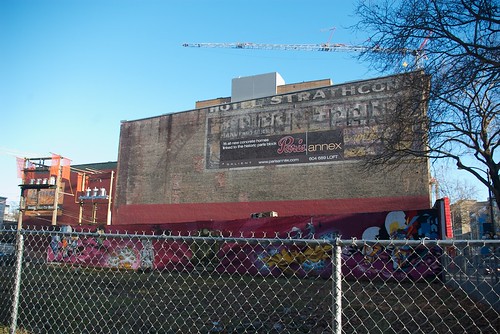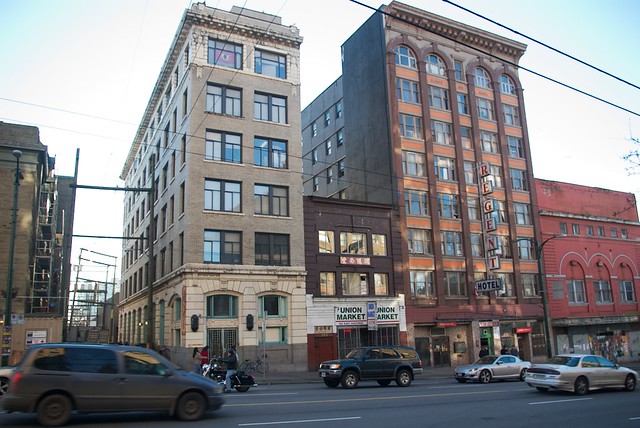Mayoral candidates debate against the public
Rather than reveal disagreements, the event brought to the fore the overlapping politics of Robertson and Anton. If before tonight there was a sense that the candidates’ two parties — Vision and the NPA — were different in their respective policy platforms, tonight’s debate showcased agreement on housing strategy: let the market do it. When asked in vague terms if the market could provide all the solutions, both candidates hesitated, and Anton frequently brought in her party’s history of buying sites throughout Vancouver for social housing — admittedly more than could be said for Vision. But on actual concrete politics, the candidates converged more than they differed. Most importantly, both candidates stressed that they do not support a speculator tax on housing and do not support inclusionary zoning in Vancouver.
Inclusionary zoning is an urban planning policy used in cities throughout the world — including Vancouver’s Oppenheimer district (“DEOD”) — mandating the inclusion of affordable housing in all new multi-unit housing developments. In exchange for pushing up property values and exposing low-income renters to evictions, developers are forced to build a percentage of new units as affordable. In Oppenheimer it’s 20%. Tonight, the question was: “Would an inclusionary zoning policy, one where you require developers to build a certain percentage of affordable units into their projects like Richmond does, be workable in Vancouver?” Gregor and Anton said categorically: no.
Gregor was referring to city staff’s current review of inclusionary zoning in the Oppenheimer district. Earlier this year head Planner Brent Toderian stated that the city will have to make “tough decisions” about inclusionary zoning in the Oppenheimer district. Tonight Gregor repeated this plan for affordability: replace affordable housing in East Vancouver with $300,000 condominiums. Like Anton, who tonight argued for a “common sense revolution” of “removing red tape” for the developers, Gregor wants further de-regulation to accompany more STIR tax breaks.
[caption id="attachment_3616" align="aligncenter" width="620" caption="vancouversun.com"] [/caption]
[/caption]
Throughout the debate, however, dozens in attendance disagreed with Robertson and Anton, shouting slogans like, “Housing is a Human Right,” “Stop the Evictions,” “Drown Out the Developer Parties,” “Gregor Lies,” and “Three More Years of What?” A big theme of the night was the debate format itself, pitting two candidates “against” each other in a false opposition. Attendees — dozens of them from #occupyvancouver, arriving at the debate with the recent announcement that Mayor Roberston has ordered an eviction of Occupy — rejected the format of the debate, which excluded any political party or candidate not funded by developers.



